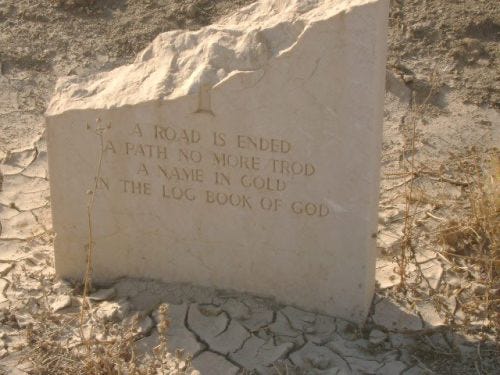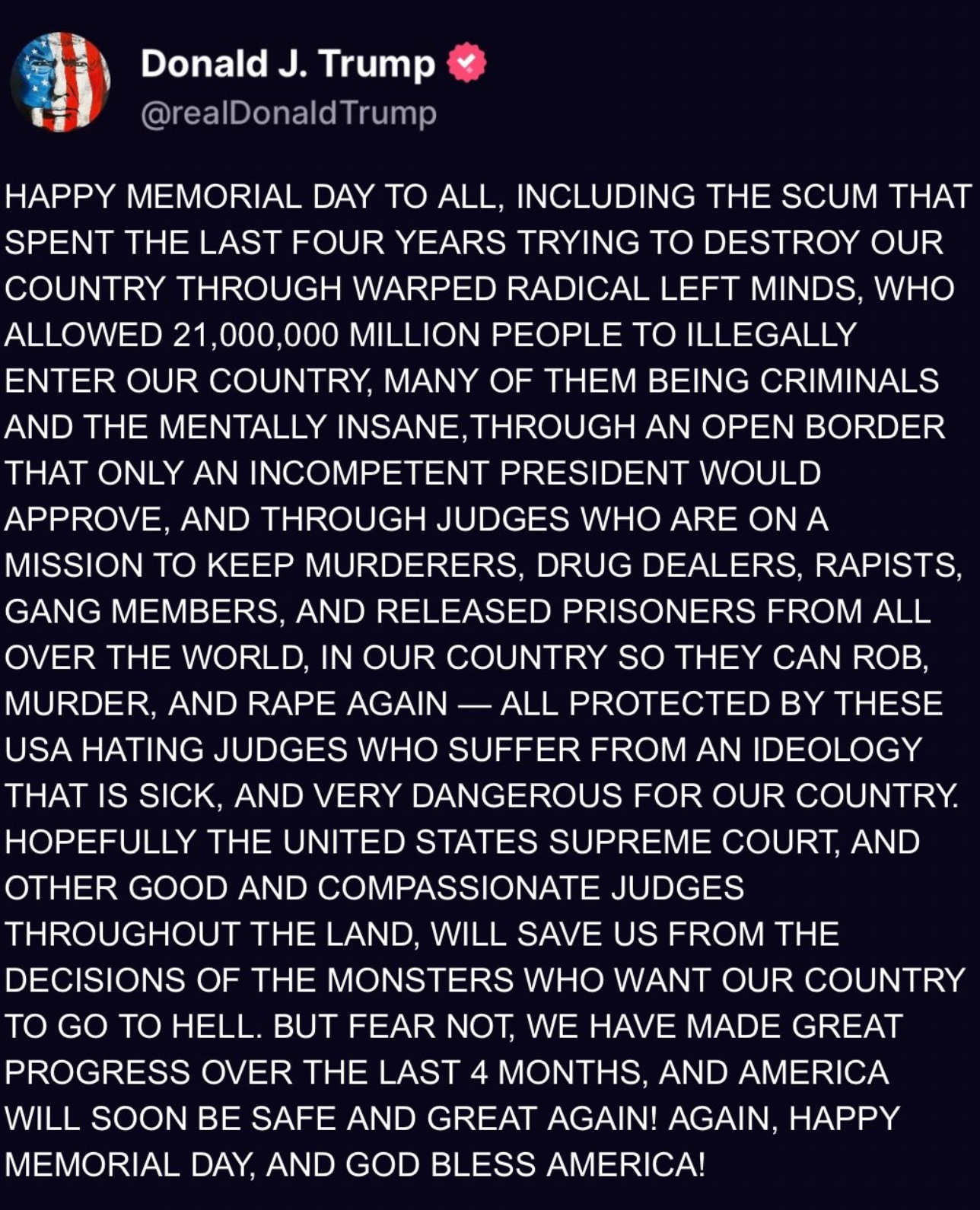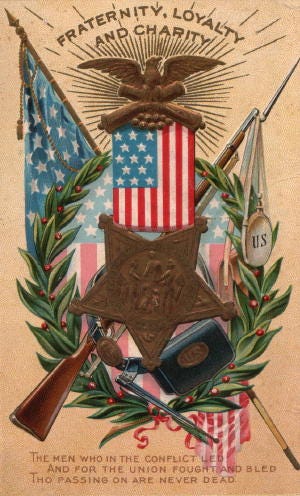Memorial Day is always an emotional time for me, especially since I returned from Iraq in 2008. It is a weekend that I always think about the men and women that I knew who died in action or died after they left the service, some at their own hand, unable to bear the burdens and trauma that they suffered while at war. In an age where less than one percent of Americans serve in the military, I think that it is important that we take the time to remember and reflect on the human cost of wars.
For me I think that is the lives lost that hit me hardest. They were friends who I knew, and also family members that I never met because they lost their lives before I was born.
I think of the battlefields that I have served on in Al Anbar Province, the one my father served on at An Loc, Vietnam, and the battlefields and military cemeteries I have been to: Verdun, the Somme, Paschendaele, Waterloo, Arnhem, Normandy, Belleau Wood, Luxembourg, the German West Wall, the Shuri Line, the Naktong River, Yorktown, Chancellorsville, Antietam, Stone’s River, Bentonville, Gettysburg, and the wrecks of the USS Arizona and USS Utah at Pearl Harbor, just to name some. I also think about the men and women who never returned, including friends, they are seared into my memory.
To me all of these battlefields and military cemeteries are hallowed ground. They are ground that none of us can hallow, as the sacrifices of the men who gave their last full measure of devotion have done that better than we can ever do.
I find the Soldiers Cemetery at Gettysburg to be on of the most hallowed to me. Whenever I visit it I can hear the words that Walt Whitman penned after the war as he reflect on the human costs of it in his poem Ashes of Soldiers.
After the end of the American Civil War, the poet Walt Whitman reflected on the human cost of it. Whitman wrote,
“Ashes of soldiers South or North,
As I muse retrospective murmuring a chant in thought, The war resumes, again to my sense your shapes, And again the advance of the armies.
Noiseless as mists and vapors, From their graves in the trenches ascending, From cemeteries all through Virginia and Tennessee, From every point of the compass out of the countless graves,
In wafted clouds, in myriads large, or squads of twos or threes or single ones they come, And silently gather round me…”
Although the cemetery at Gettysburg was dedicated before the first Memorial Day organized by newly freed slaves at the Martyrs of the Racecourse cemetery in Charleston, South Carolina, or the publication of the Memorial Day Order by Major General John Logan of the Grand Army of the Republic veterans organization in 1868, the words spoken by Abraham Lincoln in his Gettysburg Address epitomized the essence of what would become Decoration Day, and now Memorial Day. Every time I have taken students to Gettysburg our last stop is the Soldiers Cemetery. I talk about the cemetery that it adjoins, the Evergreen Cemetery which played an important part in the battle and its link to the Rural Cemetery movement which was part the Greek Revival period in American history. I then discuss how the Soldiers Cemetery came to be and Lincoln’s part in its dedication.
Lincoln spoke these words on 19 November, 1863. He wrote them while traveling to Gettysburg the day before.
Four score and seven years ago our fathers brought forth on this continent, a new nation, conceived in Liberty, and dedicated to the proposition that all men are created equal.
Now we are engaged in a great civil war, testing whether that nation, or any nation so conceived and so dedicated, can long endure. We are met on a great battle-field of that war. We have come to dedicate a portion of that field, as a final resting place for those who here gave their lives that that nation might live. It is altogether fitting and proper that we should do this.
But, in a larger sense, we cannot dedicate — we can not consecrate — we can not hallow — this ground. The brave men, living and dead, who struggled here, have consecrated it, far above our poor power to add or detract. The world will little note, nor long remember what we say here, but it can never forget what they did here. It is for us the living, rather, to be dedicated here to the unfinished work which they who fought here have thus far so nobly advanced. It is rather for us to be here dedicated to the great task remaining before us — that from these honored dead we take increased devotion to that cause for which they gave the last full measure of devotion — that we here highly resolve that these dead shall not have died in vain — that this nation, under God, shall have a new birth of freedom — and that government of the people, by the people, for the people, shall not perish from the earth.
When Lincoln delivered the address, he was suffering from what was mostly likely a mild form of Smallpox. Thus the tenor, simplicity and philosophical depth of his address are even more remarkable. It is a speech given in the manner of Winston Churchill’s “Blood sweat toil and tears”address to Parliament upon his appointment as Prime Minister in May, 1940. Likewise it echoes the Transcendentalist understanding of the Declaration of Independence as a “test for all other things.”
Lincoln’s words were far more fitting than any ever spoken by Donald Trump in any verbal assault committed against our active duty military personnel, their families, veterans, our war dead, those wounded, captured, or missing in action in almost every speech that he makes. Likewise, his infernal tweets on his personal version of Twitter, with which denigrates our country on any important occasion, including today. His slurred and mostly inappropriate speech at Arlington National Cemetery was a case in point. Little was said about the sacrifice of those interred there but most of what he said was about him.
I cannot imagine Lincoln or any other American President blasting out such words on a day that we honor the men and women who gave their lives in the service of our country and those who died following their service. Trump’s words are unseemly and unholy, they are the hate filled rants of a cowardly little man who did all he could to avoid serving in the military during Vietnam, and depreciates the sacrifices of those who did.
However horrible Trump’s words are I have to return to higher things that will far outlive Trump and his perverted movement. Trump is destined for the ash heap of history, and while he will continue to do great damage, his end is assured, but ours is not, especially if we stand for higher and greater things than he ever will comprehend.
Joshua Lawrence Chamberlain, the hero of the Battle of Little Round Top at Gettysburg wrote something that talks about the importance and even the transcendence of the deeds of those who lost their lives in our wars fought and died to achieve, as well all of those who served as volunteers or draftees throughout our history.
“In great deeds, something abides. On great fields, something stays. Forms change and pass; bodies disappear; but spirits linger, to consecrate ground for the vision-place of souls… generations that know us not and that we know not of, heart-drawn to see where and by whom great things were suffered and done for them, shall come to this deathless field, to ponder and dream; and lo! the shadow of a mighty presence shall wrap them in its bosom, and the power of the vision pass into their souls.”
We should also remember John Logan’s Decoration Day Order:
GENERAL ORDERS No. 11
I. The 30th day of May, 1868 is designated for the purpose of strewing with flowers or otherwise decorating the graves of comrades who died in defense of their country during the late rebellion, and whose bodies now lie in almost every city, village, and hamlet churchyard in the land. In this observance no form or ceremony is prescribed, but posts and comrades will in their own way arrange such fitting services and testimonials of respect as circumstances may permit.
We are organized, comrades, as our regulations tell us, for the purpose, among other things, “of preserving and strengthening those kind and fraternal feelings which have bound together the soldiers, sailors and marines who united to suppress the late rebellion.” What can aid more to assure this result than by cherishing tenderly the memory of our heroic dead who made their breasts a barricade between our country and its foes? Their soldier lives were the reveille of freedom to a race in chains and their deaths the tattoo of rebellious tyranny in arms. We should guard their graves with sacred vigilance. All that the consecrated wealth and taste of the nation can add to their adornment and security is but a fitting tribute to the memory of her slain defenders. Let no wanton foot tread rudely on such hallowed grounds. Let pleasant paths invite the coming and going of reverent visitors and fond mourners. Let no vandalism of avarice or neglect, no ravages of time, testify to the present or to the coming generations that we have forgotten, as a people, the cost of a free and undivided republic.
If other eyes grow dull and other hands slack, and other hearts cold in the solemn trust, ours shall keep it well as long as the light and warmth of life remains in us.
Let us, then, at the time appointed, gather around their sacred remains and garland the passionless mounds above them with choicest flowers of springtime; let us raise above them the dear old flag they saved from dishonor; let us in this solemn presence renew our pledges to aid and assist those whom they have left among us as sacred charges upon the nation’s gratitude—the soldier’s and sailor’s widow and orphan.
II. It is the purpose of the commander in chief to inaugurate this observance with the hope that it will be kept up from year to year, while a survivor of the war remains to honor the memory of his departed comrades. He earnestly desires the public press to call attention to this order, and lend its friendly aid in bringing it to the notice of comrades in all parts of the country in time for simultaneous compliance therewith.
III. Department commanders will use every effort to make this order effective.
By Command of –
John A. Logan,
Commander in Chief
That is why we celebrate Memorial Day, and why no-matter how Donald Trump and his Regime despoil it and denigrate those who serve or served.








Well said, Padre. Donald Trump's words this Memorial Day are as a slap in the face to the entire nation, but especially to the very ones this day was meant to honour, those who gave their lives to protect and defend the nation, the Constitution, democracy.
Thanks for your sincerity.
I don’t have the patience to read the entire post.